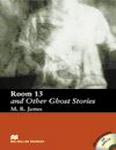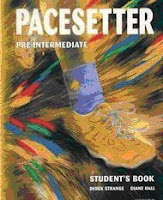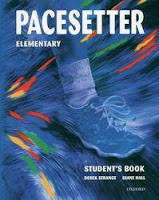 This new edition of Demon Seed is an updated version of a novel that Koontz wrote in the 70's (of which a film version was made). The basic plot of the story is that a super-intelligent computer named Proteus becomes self-aware, and falls in what he thinks is love with the wife of the scientist who helped design him. He enters her fully-automated house by way of the controlling computer, and soon has her trapped inside. His aim is to impregnate the woman and inject into the foetus his own consciousness.
This new edition of Demon Seed is an updated version of a novel that Koontz wrote in the 70's (of which a film version was made). The basic plot of the story is that a super-intelligent computer named Proteus becomes self-aware, and falls in what he thinks is love with the wife of the scientist who helped design him. He enters her fully-automated house by way of the controlling computer, and soon has her trapped inside. His aim is to impregnate the woman and inject into the foetus his own consciousness.
What makes this book particularly interesting is the fact that Koontz uses Proteus to make a social comment on the male mind and how it perceives women. It really gives a fascinating insight into the male psyche, through the eyes of the computer who thinks he loves this woman and can use that as an excuse to hurt her as much as he pleases. Definitely an interesting read, and one which will make both sexes think.![]()
Dean Koontz - Demon Seed
Labels: Dean Koontz
Dean Koontz - Brother Odd
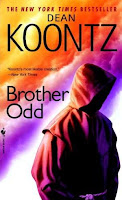 Bestseller Koontz's third Odd Thomas novel (after Forever Odd) offers an irresistibly offbeat mix of supernatural horror and laugh-out-loud humor. A resident of St. Bartholomew's Abbey, a monastery in the Sierra Nevada mountains, Thomas has the ability to see the spirits of the dead, a gift he has used to resolve mysteries and prevent future tragedies. As the story opens, the seer is unsettled by visions of bodachs, sinister ghostlike entities whose appearance precedes some dire tragedy. Thomas frantically searches for some sign that will help him head off disaster, even as St. Bart's is thrown into turmoil by the disappearance of one of its members. Thomas must figure out both the identity of the person or being behind the terror and the most effective way to restore peace to his haven. While newcomers may find the villain's underlying motive a bit over the top, the narrator's engaging voice should continue to give this series cross-genre appeal.
Bestseller Koontz's third Odd Thomas novel (after Forever Odd) offers an irresistibly offbeat mix of supernatural horror and laugh-out-loud humor. A resident of St. Bartholomew's Abbey, a monastery in the Sierra Nevada mountains, Thomas has the ability to see the spirits of the dead, a gift he has used to resolve mysteries and prevent future tragedies. As the story opens, the seer is unsettled by visions of bodachs, sinister ghostlike entities whose appearance precedes some dire tragedy. Thomas frantically searches for some sign that will help him head off disaster, even as St. Bart's is thrown into turmoil by the disappearance of one of its members. Thomas must figure out both the identity of the person or being behind the terror and the most effective way to restore peace to his haven. While newcomers may find the villain's underlying motive a bit over the top, the narrator's engaging voice should continue to give this series cross-genre appeal.![]()
Labels: Dean Koontz
Stephen King - Carrie
 Why read Carrie? Stephen King himself has said that he finds his early work "raw," and Brian De Palma's movie was so successful that we feel like we have read the novel even if we never have. The simple answer is that this is a very scary story, one that works as well--if not better--on the page as on the screen. Carrie White, menaced by bullies at school and her religious nut of a mother at home, gradually discovers that she has telekinetic powers, powers that will eventually be turned on her tormentors. King has a way of getting under the skin of his readers by creating an utterly believable world that throbs with menace before finally exploding. He builds the tension in this early work by piecing together extracts from newspaper reports, journals, and scientific papers, as well as more traditional first- and third-person narrative in order to reveal what lurks beneath the surface of Chamberlain, Maine.
Why read Carrie? Stephen King himself has said that he finds his early work "raw," and Brian De Palma's movie was so successful that we feel like we have read the novel even if we never have. The simple answer is that this is a very scary story, one that works as well--if not better--on the page as on the screen. Carrie White, menaced by bullies at school and her religious nut of a mother at home, gradually discovers that she has telekinetic powers, powers that will eventually be turned on her tormentors. King has a way of getting under the skin of his readers by creating an utterly believable world that throbs with menace before finally exploding. He builds the tension in this early work by piecing together extracts from newspaper reports, journals, and scientific papers, as well as more traditional first- and third-person narrative in order to reveal what lurks beneath the surface of Chamberlain, Maine.![]()
Labels: Stephen King
Thomas Harris - Red Dragon
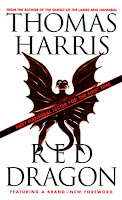 Lying on a cot in his cell with Alexandre Dumas's Le Grand Dictionnaire de Cuisine open on his chest, Hannibal "The Cannibal" Lecter makes his debut in this legendary horror novel, which is even better than its sequel, The Silence of the Lambs. As in Silence, the pulse-pounding suspense plot involves a hypersensitive FBI sleuth who consults psycho psychiatrist Lecter for clues to catching a killer on the loose. The sleuth, Will Graham, actually quit the FBI after nearly getting killed by Lecter while nabbing him, but fear isn't what bugs him about crime busting. It's just too creepy to get inside a killer's twisted mind. But he comes back to stop a madman who's been butchering entire families. The FBI needs Graham's insight, and Graham needs Lecter's genius. But Lecter is a clever fiend, and he manipulates both Graham and the killer at large from his cell. That killer, Francis Dolarhyde, works in a film lab, where he picks his victims by studying their home movies. He's obsessed with William Blake's bizarre painting The Great Red Dragon and the Woman Clothed with the Sun, believing there's a red dragon within him, the personification of his demonic drives. Flashbacks to Dolarhyde's terrifying childhood and superb stream-of-consciousness prose get us right there inside his head. When Dolarhyde does weird things, we understand why. We sympathize when the voice of the cruel dead grandma who raised and crazed him urges him to mayhem--she's way scarier than that old bat in Psycho. When he falls in love with a blind girl at the lab, we hope he doesn't give in to Grandma's violent advice.
Lying on a cot in his cell with Alexandre Dumas's Le Grand Dictionnaire de Cuisine open on his chest, Hannibal "The Cannibal" Lecter makes his debut in this legendary horror novel, which is even better than its sequel, The Silence of the Lambs. As in Silence, the pulse-pounding suspense plot involves a hypersensitive FBI sleuth who consults psycho psychiatrist Lecter for clues to catching a killer on the loose. The sleuth, Will Graham, actually quit the FBI after nearly getting killed by Lecter while nabbing him, but fear isn't what bugs him about crime busting. It's just too creepy to get inside a killer's twisted mind. But he comes back to stop a madman who's been butchering entire families. The FBI needs Graham's insight, and Graham needs Lecter's genius. But Lecter is a clever fiend, and he manipulates both Graham and the killer at large from his cell. That killer, Francis Dolarhyde, works in a film lab, where he picks his victims by studying their home movies. He's obsessed with William Blake's bizarre painting The Great Red Dragon and the Woman Clothed with the Sun, believing there's a red dragon within him, the personification of his demonic drives. Flashbacks to Dolarhyde's terrifying childhood and superb stream-of-consciousness prose get us right there inside his head. When Dolarhyde does weird things, we understand why. We sympathize when the voice of the cruel dead grandma who raised and crazed him urges him to mayhem--she's way scarier than that old bat in Psycho. When he falls in love with a blind girl at the lab, we hope he doesn't give in to Grandma's violent advice.
Part1 Part2![]()
![]()
Labels: Thomas Harris
Neil Gaiman - Stardust
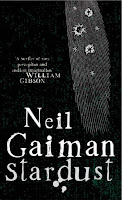 Tristran Thorn falls in love with the prettiest girl in town and makes her a foolish promise: he says that he'll go find the falling star they both watched streak across the night sky. She says she'll marry him if he finds it, so he sets off, leaving his home of Wall, and heads out into the perilous land of faerie, where not everything is what it appears. Gaiman is known for his fanciful wit, sterling prose and wildly imaginative plots, and Stardust is no exception. Gaiman's silver-tongued narration vividly brings this production to life. Like the bards of old, Gaiman is equally proficient at telling tales as he is at writing them, and his pleasant British accent feels like a perfect match to the material. Gaiman's performance is an extraordinary achievement—if only all authors could read their own work so well. The audiobook also includes a brief, informative and enjoyable interview with Gaiman about the writing of the novel and his work in the audiobook studio.
Tristran Thorn falls in love with the prettiest girl in town and makes her a foolish promise: he says that he'll go find the falling star they both watched streak across the night sky. She says she'll marry him if he finds it, so he sets off, leaving his home of Wall, and heads out into the perilous land of faerie, where not everything is what it appears. Gaiman is known for his fanciful wit, sterling prose and wildly imaginative plots, and Stardust is no exception. Gaiman's silver-tongued narration vividly brings this production to life. Like the bards of old, Gaiman is equally proficient at telling tales as he is at writing them, and his pleasant British accent feels like a perfect match to the material. Gaiman's performance is an extraordinary achievement—if only all authors could read their own work so well. The audiobook also includes a brief, informative and enjoyable interview with Gaiman about the writing of the novel and his work in the audiobook studio.![]()
Labels: Neil Gaiman
Michael Crichton - Congo
 If you saw the 1995 film adaptation of this Crichton thriller, somebody owes you an apology. While you're waiting for that to happen, try reading the vastly more intelligent novel on which the movie was based. The broad lines of the plot remain the same: A research team deep in the jungle disappears after a mysterious and grisly gorilla attack. A subsequent team, including a sign-language-speaking simian named Amy, follows the original team's tracks only to be subjected to more mysterious and grisly gorilla attacks. If you can look past the breathless treatment of '80s technology, like voice-recognition software and 256K RAM modules (the book was written in 1980), you'll find the same smart use of science and edge-of-your-seat suspense shared by Crichton's other work.
If you saw the 1995 film adaptation of this Crichton thriller, somebody owes you an apology. While you're waiting for that to happen, try reading the vastly more intelligent novel on which the movie was based. The broad lines of the plot remain the same: A research team deep in the jungle disappears after a mysterious and grisly gorilla attack. A subsequent team, including a sign-language-speaking simian named Amy, follows the original team's tracks only to be subjected to more mysterious and grisly gorilla attacks. If you can look past the breathless treatment of '80s technology, like voice-recognition software and 256K RAM modules (the book was written in 1980), you'll find the same smart use of science and edge-of-your-seat suspense shared by Crichton's other work.![]()
Labels: Michael Crichton
Michael Crichton - Andromeda Strain
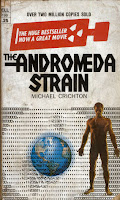 The United States government is given a warning by the pre-eminent biophysicists in the country: current sterilization procedures applied to returning space probes may be inadequate to guarantee uncontaminated re-entry to the atmosphere. Two years later, seventeen satellites are sent into the outer fringes of space to "collect organisms and dust for study." One of them falls to earth, landing in a desolate area of Arizona.
The United States government is given a warning by the pre-eminent biophysicists in the country: current sterilization procedures applied to returning space probes may be inadequate to guarantee uncontaminated re-entry to the atmosphere. Two years later, seventeen satellites are sent into the outer fringes of space to "collect organisms and dust for study." One of them falls to earth, landing in a desolate area of Arizona.
Twelve miles from the landing site, in the town of Piedmont, a shocking discovery is made: the streets are littered with the dead bodies of the town's inhabitants, as if they dropped dead in their tracks.![]()
Labels: Michael Crichton
James Clavell - Shogun
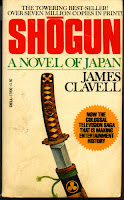 Historical' fiction is something of a misnomer, as books placed in this category are almost always fiction first and 'historical' only in time and setting. Shogun, however, comes close to being a true example of this field, detailing the late 16th century exploration and exploitation of the Orient by the Portuguese, Dutch, Spanish, and English. As few Americans are aware of some of the atrocities and cruelties committed in the name of crown and religion during this period, some of the scenes depicted in this book may come as shock. But they provide an excellent background portrait of the European mind-set of those times, a palette that Clavell uses to contrast and define the extraordinarily different culture of the Japan of that time.
Historical' fiction is something of a misnomer, as books placed in this category are almost always fiction first and 'historical' only in time and setting. Shogun, however, comes close to being a true example of this field, detailing the late 16th century exploration and exploitation of the Orient by the Portuguese, Dutch, Spanish, and English. As few Americans are aware of some of the atrocities and cruelties committed in the name of crown and religion during this period, some of the scenes depicted in this book may come as shock. But they provide an excellent background portrait of the European mind-set of those times, a palette that Clavell uses to contrast and define the extraordinarily different culture of the Japan of that time.
And it is his portrait of the Japanese, his lovingly detailed characterizations of Toranaga, Mariko, Omi and their deeply intertwined interactions with the English pilot Blackthorne that defines and breathes life into this breathtakingly large and complex story of love, war, and political intrigue. And these characters are not static. Each grows and changes as events unfold, most especially Blackthorne himself, growing from a totally self-centered 'barbarian' of unclean habits to a person who can appreciate the beauty, intelligence, and moral rectitude of others, who comes to care deeply for those around him, who comes to understand a philosophy of life totally different from that of his own culture. The reader will eventually take each of these characters into his heart, will live right along with them and their problems, cares, successes, and failures, until they are almost more real than the mundane world the reader inhabits.
Is this book totally historically accurate? No, but it doesn't really need to be. It is a fictional account of one of the defining moments of Japanese history, with all the requirements of a work of fiction, written for an American audience, and certain items have yielded to literary license to make the story more approachable by the reader. Certainly Toranaga would not have played chess, but would American readers have understood 'Go' as metaphor for Toranaga's deep political machinations? As a story, a tale of high adventure, as a hard look at alternative life philosophies, as an exposition of a very exotic time, place, and culture, this work succeeds on almost every level. This is an excellent read that will expand your horizons and enrich your life, entertain you and satisfy your inner craving for something different from the every-day world of today.
Part1 Part2![]()
![]()
Part3 Part4![]()
![]()
Part5![]()
Labels: James Clavell
Tom Clancy - Bear and the Dragon
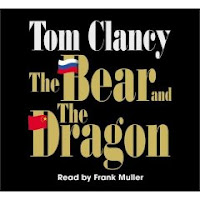 Power is delightful, and absolute power should be absolutely delightful--but not when you're the most powerful man on earth and the place is ticking like a time bomb. Jack Ryan, CIA warrior turned U.S. president, is the man in the hot seat, and in this vast thriller he's up to his nostrils in crazed Asian warlords, Russian thugs, nukes that won't stay put, and authentic, up-to-the-nanosecond technology as complex as the characters' motives are simple. Quick, do you know how to reprogram the software in an Aegis missile seekerhead? Well, if you're Jack Ryan, you'd better find someone who does, or an incoming ballistic may rain fallout on your parade. Bad for reelection prospects. "You know, I don't really like this job very much," Ryan complains to his aide Arnie van Damm, who replies, "Ain't supposed to be fun, Jack."
Power is delightful, and absolute power should be absolutely delightful--but not when you're the most powerful man on earth and the place is ticking like a time bomb. Jack Ryan, CIA warrior turned U.S. president, is the man in the hot seat, and in this vast thriller he's up to his nostrils in crazed Asian warlords, Russian thugs, nukes that won't stay put, and authentic, up-to-the-nanosecond technology as complex as the characters' motives are simple. Quick, do you know how to reprogram the software in an Aegis missile seekerhead? Well, if you're Jack Ryan, you'd better find someone who does, or an incoming ballistic may rain fallout on your parade. Bad for reelection prospects. "You know, I don't really like this job very much," Ryan complains to his aide Arnie van Damm, who replies, "Ain't supposed to be fun, Jack."
But you bet The Bear and the Dragon is fun--over 1,000 swift pages' worth. In the opening scene, a hand-launched RPG rocket nearly blows up Russia's intelligence chief in his armored Mercedes, and Ryan's clever spooks report that the guy who got the rocket in his face instead was the hoodlum "Rasputin" Avseyenko, who used to run the KGB's "Sparrow School" of female prostitute spies. Soon after, two apparent assassins are found handcuffed together afloat in St. Petersburg's Neva River, their bloated faces resembling Pokémon toys.
The stakes go higher as the mystery deepens: oil and gold are discovered in huge quantities in Siberia, and the evil Chinese Minister Without Portfolio Zhang Han San gazes northward with lust. The laid-off elite of the Soviet Army figure in the brewing troubles, as do the new generation of Tiananmen Square dissidents, Zhang's wily, Danielle Steel-addicted executive secretary Lian Ming, and Chester Nomuri, a hip, Internet-porn-addicted CIA agent posing in China as a Japanese computer salesman. He e-mails his CIA boss, Mary Pat "the Cowgirl" Foley, that he intends to seduce Ming with Dream Angels perfume and scarlet Victoria's Secret lingerie ordered from the catalog--strictly for God and country, of course. Soon Ming is calling him "Master Sausage" instead of "Comrade," but can anybody master Ming?
The plot is over the top, with devastating subplots erupting all over the globe and lurid characters scaring the wits out of each other every few pages, but Clancy finds time to insert hard-boiled little lessons on the vileness of Communism, the infuriating intrusions of the press on presidential power, the sexual perversions of Mao, the poor quality of Russian pistol silencers ("garbage, cans loaded with steel wool that self-destructed after less than ten shots"), the folly of cutting a man's throat with a knife ("they flop around and make noise when you do that"), and similar topics. Naturally, the book bristles like a battlefield with intriguingly intricate military hardware. When you've got a Tom Clancy novel in hand, who needs action movies?![]()
Labels: Tom Clancy
Dan Brown - Angels and Demons
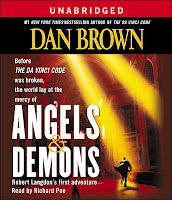 It takes guts to write a novel that combines an ancient secret brotherhood, the Swiss Conseil Européen pour la Recherche Nucléaire, a papal conclave, mysterious ambigrams, a plot against the Vatican, a mad scientist in a wheelchair, particles of antimatter, jets that can travel 15,000 miles per hour, crafty assassins, a beautiful Italian physicist, and a Harvard professor of religious iconology. It takes talent to make that novel anything but ridiculous. Kudos to Dan Brown (Digital Fortress) for achieving the nearly impossible. Angels & Demons is a no-holds-barred, pull-out-all-the-stops, breathless tangle of a thriller--think Katherine Neville's The Eight (but cleverer) or Umberto Eco's Foucault's Pendulum (but more accessible).
It takes guts to write a novel that combines an ancient secret brotherhood, the Swiss Conseil Européen pour la Recherche Nucléaire, a papal conclave, mysterious ambigrams, a plot against the Vatican, a mad scientist in a wheelchair, particles of antimatter, jets that can travel 15,000 miles per hour, crafty assassins, a beautiful Italian physicist, and a Harvard professor of religious iconology. It takes talent to make that novel anything but ridiculous. Kudos to Dan Brown (Digital Fortress) for achieving the nearly impossible. Angels & Demons is a no-holds-barred, pull-out-all-the-stops, breathless tangle of a thriller--think Katherine Neville's The Eight (but cleverer) or Umberto Eco's Foucault's Pendulum (but more accessible).
Harvard symbologist Robert Langdon is shocked to find proof that the legendary secret society, the Illuminati--dedicated since the time of Galileo to promoting the interests of science and condemning the blind faith of Catholicism--is alive, well, and murderously active. Brilliant physicist Leonardo Vetra has been murdered, his eyes plucked out, and the society's ancient symbol branded upon his chest. His final discovery, antimatter, the most powerful and dangerous energy source known to man, has disappeared--only to be hidden somewhere beneath Vatican City on the eve of the election of a new pope. Langdon and Vittoria, Vetra's daughter and colleague, embark on a frantic hunt through the streets, churches, and catacombs of Rome, following a 400-year-old trail to the lair of the Illuminati, to prevent the incineration of civilization.
Brown seems as much juggler as author--there are lots and lots of balls in the air in this novel, yet Brown manages to hurl the reader headlong into an almost surreal suspension of disbelief. While the reader might wish for a little more sardonic humor from Langdon, and a little less bombastic philosophizing on the eternal conflict between religion and science, these are less fatal flaws than niggling annoyances--readers should have no trouble skimming past them and immersing themselves in a heck of a good read. "Brain candy" it may be, but my! It's tasty.
Part1 Part2![]()
![]()
Labels: Dan Brown
Robert Baer - See No Evil
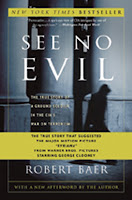 Although the author/narrator lacks a trained voice, his muttered, sometimes hesitant speech makes him more believable as an intelligence-gatherer--trained more to listen than to talk. Robert Baer's abridged work leaps by place and time, illuminating the CIA field officer's career from recruitment to retirement, with lots of detailed recollections culled from twenty years of clandestine Middle Eastern operations. Due to government censorship of the manuscript, the reader must interject, "words blacked out" at the most annoying times. However, the stuff that does slip through gives ample detail of how these guys bribe, steal, intoxicate, and deceive to gain vital information.
Although the author/narrator lacks a trained voice, his muttered, sometimes hesitant speech makes him more believable as an intelligence-gatherer--trained more to listen than to talk. Robert Baer's abridged work leaps by place and time, illuminating the CIA field officer's career from recruitment to retirement, with lots of detailed recollections culled from twenty years of clandestine Middle Eastern operations. Due to government censorship of the manuscript, the reader must interject, "words blacked out" at the most annoying times. However, the stuff that does slip through gives ample detail of how these guys bribe, steal, intoxicate, and deceive to gain vital information.![]()
Labels: Robert Baer
Room 13 and Other Ghost Stories
Frankenstein
 Victor Frankenstein is a young scientist who creates a hideous living person from the parts of dead bodies. At first the monster looks for love and wants to be kind. But soon his experiences teach him to hate. Will the monster finally destroy his creator? Frankenstein is probably the most famous horror story of all. Mary Shelley wrote it in 1816 when she was only nineteen years old.
Victor Frankenstein is a young scientist who creates a hideous living person from the parts of dead bodies. At first the monster looks for love and wants to be kind. But soon his experiences teach him to hate. Will the monster finally destroy his creator? Frankenstein is probably the most famous horror story of all. Mary Shelley wrote it in 1816 when she was only nineteen years old.![]()
Labels: Mary Shelley
The 8th Habit: From Effectiveness to Greatness
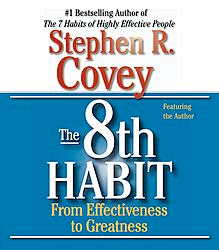 The original seven habits of highly successful people are still relevant, but Covey, author of the mega-bestseller of that title, says that the new Information/Knowledge Worker Age, exemplified by the Internet, calls for an eighth habit to achieve personal and organizational excellence: "Find your voice and inspire others to find theirs." Covey sees leadership "as a choice to deal with people in a way that will communicate to them their worth and potential so clearly they will come to see it in themselves." His holistic approach starts with developing one's own voice, one's "unique personal significance." The bulk of the book details how, after finding your own voice, you can inspire others and create a workplace where people feel engaged. This includes establishing trust, searching for third alternatives (not a compromise between your way and my way, but a third, better way) and developing a shared vision. This book isn't easy going; less business jargon and more practical examples would have made this livelier and more helpful. But if organizations operated with Covey's ideas—and ideals—most people would undoubtedly find work much more satisfying.
The original seven habits of highly successful people are still relevant, but Covey, author of the mega-bestseller of that title, says that the new Information/Knowledge Worker Age, exemplified by the Internet, calls for an eighth habit to achieve personal and organizational excellence: "Find your voice and inspire others to find theirs." Covey sees leadership "as a choice to deal with people in a way that will communicate to them their worth and potential so clearly they will come to see it in themselves." His holistic approach starts with developing one's own voice, one's "unique personal significance." The bulk of the book details how, after finding your own voice, you can inspire others and create a workplace where people feel engaged. This includes establishing trust, searching for third alternatives (not a compromise between your way and my way, but a third, better way) and developing a shared vision. This book isn't easy going; less business jargon and more practical examples would have made this livelier and more helpful. But if organizations operated with Covey's ideas—and ideals—most people would undoubtedly find work much more satisfying.![]()
Labels: Stephen R. Covey
The Complete Idiot's Guide To Amazing Sex
 Sexy is as sexy does, according to Sari Locker (called "our favorite tantalizing sex writer" by Playboy magazine). But how to feel sexy if you're a virgin, or if you've experienced sexual problems, or have serious body image hang-ups? The Complete Idiot's Guide to Amazing Sex succeeds in not only teaching technique (as well as a book can), but also offers serious advice for boosting your self-esteem. As with other Complete Idiot guides, you'll probably want to turn this one backwards in your bookcase, or at least get a book cover for it. But get past the silly title and you'll find a plethora of facts, tips, and tricks on topics including sexual response, masturbation, foreplay, afterplay, oral sex, fantasy, sex toys, sexual preference, cross-dressing, and "The Big Om": tantric sex. The margin notes liberally decorating the book are worth a hearty chuckle. The "Sextistics" are particularly fun and eye-opening. Some examples: only 9 percent of people surveyed believe sex appeal is innate; the rest feel it can be acquired!; about 7 percent of women have never climaxed; the majority of male crossdressers are married with children; and, according to the Hite Report, nearly 60 percent of men ages 61 to 75 said their desire for sex remained steady or increased with age, Viagra or no. Locker, a sex educator and WCBS-TV relationship correspondent, has been a sex educator for more than a decade. That said, she should have placed the facts on contraceptives and sexually transmitted diseases earlier in the book, before the hot and heavy photographs of sexual positions. That gripe aside, Amazing Sex is worth investigating by both sexual neophytes and experienced couples looking to maintain a state of hot monogamy.
Sexy is as sexy does, according to Sari Locker (called "our favorite tantalizing sex writer" by Playboy magazine). But how to feel sexy if you're a virgin, or if you've experienced sexual problems, or have serious body image hang-ups? The Complete Idiot's Guide to Amazing Sex succeeds in not only teaching technique (as well as a book can), but also offers serious advice for boosting your self-esteem. As with other Complete Idiot guides, you'll probably want to turn this one backwards in your bookcase, or at least get a book cover for it. But get past the silly title and you'll find a plethora of facts, tips, and tricks on topics including sexual response, masturbation, foreplay, afterplay, oral sex, fantasy, sex toys, sexual preference, cross-dressing, and "The Big Om": tantric sex. The margin notes liberally decorating the book are worth a hearty chuckle. The "Sextistics" are particularly fun and eye-opening. Some examples: only 9 percent of people surveyed believe sex appeal is innate; the rest feel it can be acquired!; about 7 percent of women have never climaxed; the majority of male crossdressers are married with children; and, according to the Hite Report, nearly 60 percent of men ages 61 to 75 said their desire for sex remained steady or increased with age, Viagra or no. Locker, a sex educator and WCBS-TV relationship correspondent, has been a sex educator for more than a decade. That said, she should have placed the facts on contraceptives and sexually transmitted diseases earlier in the book, before the hot and heavy photographs of sexual positions. That gripe aside, Amazing Sex is worth investigating by both sexual neophytes and experienced couples looking to maintain a state of hot monogamy.![]()
Pacesetter Pre-Intermediate Audio
Pacesetter Elementary Audio
Blood, Bones and Body Bits
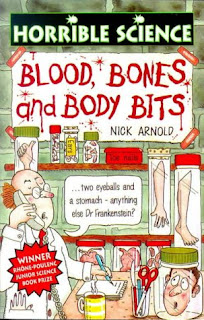 This is a look at the nasty side of science. It examines such grim facts as where food goes after it is eaten, what happens when a boil bursts, why dead people need a haircut, and which animals live on our eyelashes. The book covers the secrets of strange scientists, and how to diagnose deadly diseases. There are fact files, quizzes and teacher tests.
This is a look at the nasty side of science. It examines such grim facts as where food goes after it is eaten, what happens when a boil bursts, why dead people need a haircut, and which animals live on our eyelashes. The book covers the secrets of strange scientists, and how to diagnose deadly diseases. There are fact files, quizzes and teacher tests.![]()
Labels: Nick Arnold

 RSS Feed
RSS Feed